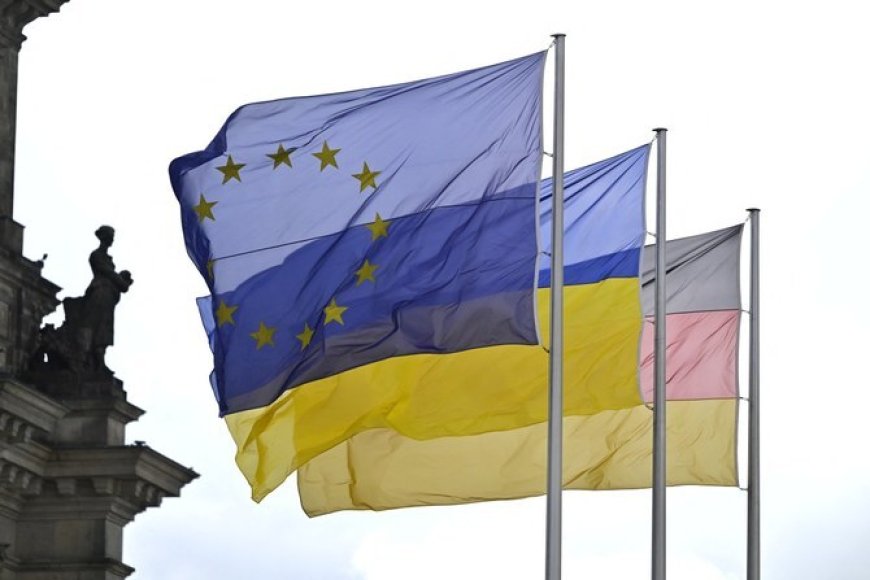EU Struggles to Reach Consensus on 15th Sanctions Package for Russia: A Critical Moment for European Unity
Representatives of European Union countries failed on Friday to approve a 15th package of sanctions on Russia.....

The European Union's most recent inability to reach consensus on the 15th package of sanctions against Russia exposes the widening differences among members on how to handle the continuing conflict in Ukraine. Notwithstanding the EU's consistent position on denouncing Russia's invasion and applying a variety of economic penalties, internal conflicts have slowed down development and called into question the bloc's capacity to project a front of solidarity in the face of rising geopolitical tensions.
Two EU members' opposition has delayed the most recent sanctions package, which includes a plan to provide the Czech Republic an exemption allowing it to keep importing Russian oil-based products via Slovakia. The argument revolves around the time extension given European businesses undergoing disinvestment from Russia. The inability to get agreement on these divisive problems points to a lack of unity and exposes the underlying complexity that have surfaced in Europe's attempt to punish Russia economically without compromising its own interests.
The suggested extension permitting the Czech Republic to import diesel and other Russian oil products from the Slovak refinery, Slovnaft, was among the most controversial elements in the sanctions package. Slovakia, mostly dependent on Russian oil, said that its energy security depends on this arrangement being continued. Nonetheless, Czech officials have shown openness to a six-month extension in recognition of their continuous efforts to vary energy sources. Although the Czech Republic is modernizing a pipeline to lessen dependency on Russian oil by 2025, this choice emphasizes the challenging balancing act European countries must perform—finding methods to isolate Russia economically while ensuring their own energy needs.
This incidence is not one-off. The EU has battled to present a cohesive front in its reaction since Russia invaded Ukraine in February 2022. One of the most important penalties the bloc took was deciding to forbid most Russian oil imports, therefore severely hurting the Russian economy. Countries more dependent on Russian energy imports, such as Hungary, Slovakia, and the Czech Republic, have managed to get exemptions, therefore reducing the total impact of the sanctions. The argument over the 15th sanctions package reminds us that although the EU's political will to fight Russia is still strong, the differences in energy dependence and geopolitical interests among the members test its economic will.
With the EU importing about 27% of its oil from Russia in 2021, data from the International Energy Agency (IEA) emphasizes the extent of Europe's energy dependence on Russia before the invasion. Since sanctions were applied, this number has dropped significantly; nonetheless, the shift to other energy sources still moves slowly and presents many difficulties. For instance, the process of moving away from Russian oil is not likely to be entirely achieved until mid-2025 while the Czech Republic is striving to diversify its energy source. This delay is a major point of conflict since it reveals the weakness of EU members still dependent on Russian energy exports, which makes them more reluctant to apply harsher sanctions likely to aggravate their own economic condition.
Apart from the argument over Russian oil supplies, the package comprises penalties aimed at tankers carrying Russian fuel. This is a component of a larger plan to restrict Russia's income, therefore undermining its capacity to sell its oil on the world market, which are vital for funding its conflict in Ukraine. Like many other facets of the sanctions, the execution of these policies is hampered by gaps and the participation of non-EU nations, especially those in the Middle East and Asia, which still trade with Russia despite EU initiatives.
The rejection of the 15th sanctions package by the European Union emphasizes how challenging it is to keep a consistent approach in front of changing geopolitical conditions. Although the leadership of the bloc keeps denouncing Russia's activities, the economic and energy issues of every member state are becoming increasingly evident, therefore exposing the limits of European cooperation. As these internal conflicts are more severe, Russia might discover means to evade sanctions, therefore compromising its potency and extending the conflict in Ukraine.
Finally, the inability of the EU to reach consensus on the most recent sanctions package reflects more general conflicts inside the union on how to strike a balance between the application of sanctions and the preservation of national interests. The efficacy of European Union's economic policies against Russia will depend critically on its capacity to present a united front as the war in Ukraine drags on. The long-term effects of sanctions may be weakened unless the EU can heal its internal strife and create policies that are both strategically wise and politically practicable. This could thus help to prolong the war and complicate Europe's position on the world scene.













































